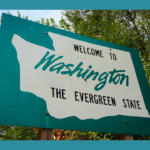So You Want to be a Vacation Rental Property Manager?
With an average annual revenue of $56,000, short-term rental properties (STRs) are the new frontier in the real estate sector. Changing dynamics in the workplace environment are partly responsible for the surging popularity of vacation rental. Working remotely enables people to travel more, creating a demand for vacation rentals. A recent analysis by AirDNA, a rental analytics company, predicts the vacation rental occupancy will grow by 15% in 2022.
The timing is right if you wish to enter vacation rental space and earn up to $250 a night with a short-term rental property. Dig in as we detail what it takes to thrive as a vacation rental property manager.
Create a Business Plan
A solid action plan is key to your success in this highly lucrative sector. Creating a comprehensive business plan lets you hit the ground running. It enables you to account for every aspect of your business from your values, motivation, goals, operations, available budget and projected income.
Creating a business plan offers deep insights into the startup costs and helps you pick the most viable option. Depending on your budget, you may choose to finance a property or rent one. The business plan lets itemize all relevant business costs, including licensing fees, operational costs, décor upgrades, furnishing, and more. It also ensures you have sufficient cash reserves to handle emergencies and tide you over the slow months.
Double Down on Research
The best vacation rental opportunities are in business hubs, tourist districts, and areas with major attractions. You need a steady supply of prospects for your business to be profitable. Doubling down on research can help you identify the neighborhoods and districts that meet these basic requirements.
A deep dive lets you identify your ideal target market and the type of vacation rental property they prefer. With an ideal buyer persona in mind, you can get insights into their budget range, preferred amenities, location, average booking lengths, and more.
Understand the Local Laws
Since vacation rentals are subject to zoning laws, you must research local housing laws. Some municipalities and homeowners’ associations (HOA) prohibit STRs, while others set stringent requirements. You want to be sure that you can successfully run a profitable operation without running afoul of the local authorities or HOAs.
Check the local municipality website or visit their offices for guidelines. Alternatively, you can seek legal advice for an attorney familiar with the local laws. Researching the local law is crucial when getting into vacation rental since the requirements vary from one city to the next.
Choose the Right Property
You can become a vacation rental property manager without owning a single property. With proper research, you only need to understand where your target customers prefer to stay and the type of properties they like. You can then strike a deal with landlords who own such properties. Since some landlords are skittish about short-term rentals, you may need to get creative with your pitch.
Offering several months in advance, security deposits, paying the utility bills, and taking out insurance are key selling points. They lower the landlord’s risk burden, making them more amenable to leasing the property.
Create a Business Entity
You’re better off running your vacation rental business as a limited liability company. Registering a legal business entity helps separate your business and personal asset. It also enables you to open a business account and avoid the crippling mistake of comingling business and personal funds. Best of all, registering an LLC shields your personal assets from business liabilities. It’s simple to obtain a business permit, open a business bank account, and insurance with an LLC.
Crunch the Numbers
There are three popular ways to measure a vacation rental business’s income: average daily rate, gross annual revenue, and revenue per available room.
Gross annual revenue: Total income generated over a fixed period calculated monthly or annually.
Average daily rate: The property’s going rate is calculated by dividing the annual income by the number of booked days.
Revenue per available room (RevPAR): The revenue generated by each room in your vacation rental.
Like any business, you must account for the overheads when running a vacation rental property. Common expenses include:
A 3% booking fee to listing sites
Supplies such as toiletries, linens, towels, and welcome gifts
Utilities such as water, electricity, gas, internet, and cable.
Maintenance and cleaning costs
Advertise and Market Your Vacation Rental
Advertising vacation rentals on Airbnb, Vacasa, and Vrbo can help your run a profitable operation. These sites are well-known and have great reach and following but are highly competitive. Creating great listings can help your vacation properties stand out and draw eyeballs. Check a few listings for inspiration, or hire an expert to help you with this crucial step.
Some of the features of a great listing include:
Eye-catching titles
Helpful and detailed property description
Multiple, professional-grade photos
Great pricing strategy
Helpful house rules
Thoughtfully listed amenities
Launch a Successful Vacation Rental Business with Gather
Running a vacation rental business might seem daunting, but the effort is well worth it. Partnering with a reputable vacation rental management company such as Gather can ensure smooth sailing. Gather provides full-service vacation rental management. We do all the heavy lifting to let you maximize your income without lifting a finger. Our services include onboarding, property management, and routine maintenance.











